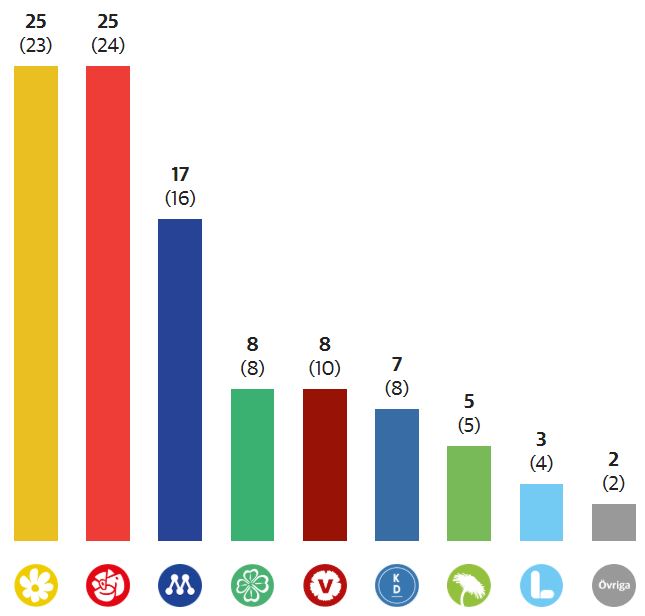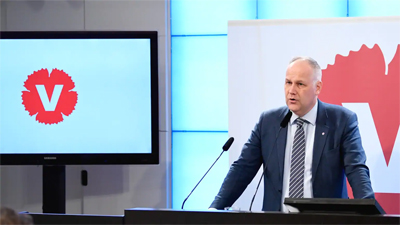
pic: amazon.com
As expected, the government and its partners, the Center and Liberal parties, agreed today to postpone and rethink the Employment Service’s reform and privatisation. As written about in this post and this post, Jonas Sjöstedt threatened to bring a vote of no confidence to the floor if the government didn’t stop the reform. The Sweden Democrats (SD), as well as the Moderate and Christian Democratic parties, hopped on the Left party’s train. This was an unexpected development for the government, never having imagined these parties to side with each other on anything.
After a weekend of negotiations with the Center and Liberal parties – the Center party being the main instigator of the Service’s privatisation to begin with – the government has proposed a new timetable for the reform. As Göran Eriksson at SvD puts it, the government backed off on all the points that SD and the Moderate, Christian Democratic and Left parties agreed upon and had a majority in parliament to back it up with, but kept the points that those parties didn’t agree on and didn’t therefore have a parliamentary majority on. In other words, the government satisfied the SD, Moderate and Christian Democratic demands, but not all of the Left party’s demands. How the Center, for whom this matter was close to the heart, is going to frame the postponement remains to be seen.
The gist of the new proposal is that “the law of free system choice” (Lagen om valfrihetssystem, or LOV) will not be the only regulation implemented for employment actors ( – so not just private employment companies will be allowed to help job seekers, but also public organizations like the current employment service and even voluntary organisations can be involved). The government has also gone along with instituting a control system so that there is some kind of check on which companies are being paid from public coffers for doing what. Finally, the reform timetable is being put off a year, to 2022 (DN.se/reform).

So the government is saved, and what remains is how the parties are spinning it. Liberal party leader Nyamko Sabuni, one of the government’s supporting parties, is insisting (despite all evidence to the contrary) that the Left party had no influence over the government’s decision (according to the January agreement that allowed Löfven to hold onto power, the Left party is not “allowed” to have any influence over government policy). The Moderate party is calling the Liberal statement “nonsense“. As previously noted in this blog, Löfven is likely delighted over the postponement.
What he is likely not at all delighted about is this newfound spirit of cooperation between opposition parties with completely different political bents. It is hard to see where they might cooperate next (and they’re certainly not saying) but who knows. The Left party didn’t mind using public support from SD to get their way – gasp – which was also somewhat interesting (they didn’t have lunch or anything though). The Moderate party leader has had lunch with the SD leader Jimmie Åkesson just recently, but now has also just backed the Left party.
What bizarre political constellations can possibly follow?










